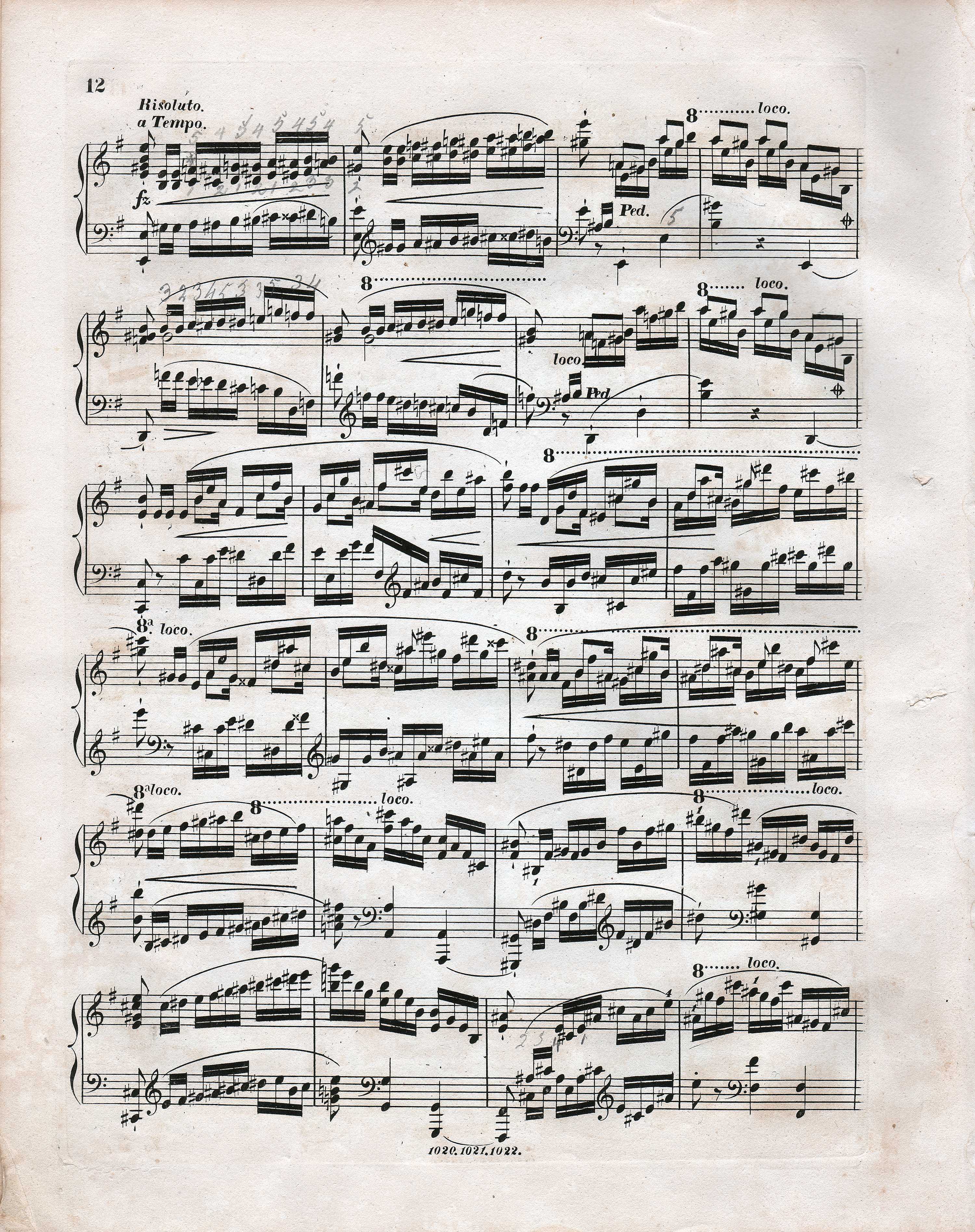Op. 2, Variations in B♭ major
Op. 10, 12 Etudes
Op. 11, Concerto in E minor
Op. 21, Concerto in F minor
Op. 22, Polonaise in E♭ major
Op. 24, 4 Mazurkas
Op. 25, 12 Etudes
Op. 26, 2 Polonaises
Op. 27, 2 Nocturnes
Op. 28, 24 Preludes
Op. 30, 4 Mazurkas
Op. 35, Sonata in B♭ minor
Op. 50, 3 Mazurkas
Op. 63, 3 Mazurkas
Op. 64, 3 Waltzes
(Op. 4), Sonata in C minor




Op. 11, Concerto in E minor, Mvt I
In FE, there are no accidentals on the 2nd and 3rd beats of the bar, which is a patent inaccuracy. In the remaining editions, a part of the necessary sharps was added; however, none of the editions employed a consistent rule of validity of accidentals for notes appearing in various octaves. In GE1 (→GE2), sharps were added before the 5th, 9th, 10th and 12th semiquavers, which was further developed in GE3 – the accidentals before the 5th and 9th semiquavers were removed and added before the 6th and 8th ones. In EE, 5 sharps were added, omitting only the one before the 6th semiquaver.
Compare the passage in the sources »
category imprint: Interpretations within context; Differences between sources
issues: EE revisions, Errors in FE, Accidentals in different octaves, GE revisions
notation: Pitch

